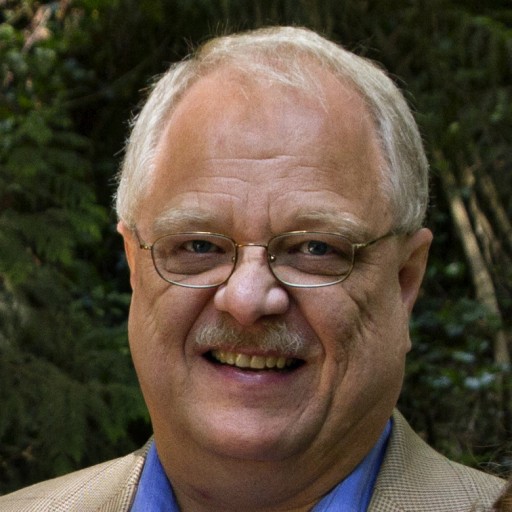Christian Witness in a Postmodern World
 In the 1960s I assisted with an outreach survey organized by the local ministerial association. The survey assumed most people had prior church involvement. In the 1970s the secular university campus ministry I attended used a rational approach to evangelism. The overwhelming evidence for the claims of Jesus, they said, compelled belief. In the early 1990s I served on the local leadership team for an evangelistic crusade. Tens of thousands attended each service. Those who responded to the invitation were met by a stranger using a script.
In the 1960s I assisted with an outreach survey organized by the local ministerial association. The survey assumed most people had prior church involvement. In the 1970s the secular university campus ministry I attended used a rational approach to evangelism. The overwhelming evidence for the claims of Jesus, they said, compelled belief. In the early 1990s I served on the local leadership team for an evangelistic crusade. Tens of thousands attended each service. Those who responded to the invitation were met by a stranger using a script.
These methods no longer effectively serve the church’s mission. As the rationalistic, technique-driven modern era gives way to an experiential, story-saturated culture, we must adjust the way we share the Gospel. We cannot assume that people have a Christian background—or that they even trust Christians—like we did in the 1960s. We cannot reduce the Christian faith to a few spiritual laws like we did in the 1970s. We cannot rely on events and scripts like we did in the 1990s.
We make a huge mistake, however, if we think that evangelism depends on our ingenuity. When God pointed Philip toward Gaza (Acts 8:26), God already had the Ethiopian’s attention. When God sent Peter to meet Cornelius (Acts 10:20), the conversation started before the summons. We always serve as the second witness as we collaborate with what the Holy Spirit began. We align ourselves to God’s mission to be effective witnesses.
Christian Witness as a Journey
In the postmodern world, Christian witness is more like a journey than a sales call. Attempts to “close the deal” won’t be effective today, nor will the large-scale event attract many seekers. Instead, Christians become spiritual companions for friends still undecided about Jesus.
The New Testament reveals that following Jesus is more relational than religious. Those who come to God in faith are united with Christ (Phil. 2:1) and united with the body of Christ through whom the mystery of God is known (Col. 2:2). Since the nature of the Christian life is relational, it only makes sense that we be relational in our witness.
So, in order to reach seekers today, we share life with our friends. We create opportunities to be with people who need Jesus. As a companion on the journey, I give up the tactics and scripts which seem artificial. While I’m with my friend I listen for life’s ultimate questions and personal pain. In those moments I nurture a response to God. While listening to my friend, I seek to discern God’s activity. Only after careful listening do I speak out of my life, including God’s responses to my own questions and God’s healing of my pain. This type of authentic, human interaction will provide Christian witness that a postmodern person will more likely receive.
Stories as Christian Witness
People in a postmodern culture respond more energetically to story than dogma. Instead of depending solely on spiritual principles, to be effective witnesses today we need to tell God’s story. We know God’s story from the Bible and can trace God’s activity in church history. The testimony of a friend provides further evidence that God continues to transform lives.
Jesus told stories to communicate God’s will. Stories present truth as a whole cloth that a patchwork of propositions can’t duplicate. A proposition appeals to the intellect, but a story opens space for the emotions and imagination too, thus providing a more complete, holistic expression.
So as Christian witnesses, we eagerly listen to the stories of others. “People will want to engage first at the level of their experience, not at the level of your beliefs about God, Jesus, sin and salvation.” When appropriate, I tell my stories, especially the transformation stories of God’s activity. As frequently as I can I orient all of the stories we tell each other to God’s story.
Christian Witness through Shared Life
The wisdom of God radiates through the church (Eph. 3:10). People in a postmodern world pay attention when the church embodies the Gospel, that is, when the shared life of Jesus followers reveals the grace of God. Individual effort contributes to the witness of the community, of course, but the important element of Christian witness in a postmodern context is the community of faith. The goal of spiritual transformation is Christlikeness, not primarily for personal benefit but to more fully participate in God’s mission for the sake of others (Rom. 12).
In the past we welcomed people into the family of God after they made a decision for Christ. Now we see that the rhythms of the community influence people even before belief is born. John told us that the world would see Jesus as the One sent from God when the community of Christ followers embodied the Gospel (John 17:23).
So we link arms and serve those beyond the church. Whenever two or three gather, we have church—in a coffee shop, on the golf course, or at a school concert. Our congregation begins to function as a network of mission teams. Team members invite those they meet along the way to join them on the journey. As we faithfully follow God and prove ourselves trustworthy in our care of others, the Christian witness shines true to those just beginning to see the light. People will come to believe in Jesus as the way, truth, and life (John 14:6).
Contrary to the claims of some, people still believe in truth. The difference today when compared with 50 years ago is that people are less inclined to find the truth solely through rational processes, but embrace truth they encounter in holistic ways. Francis of Assisi said, “Preach the Gospel at all times and when necessary use words” and that “It is no use walking anywhere to preach unless our walking is our preaching.” So in your going, make disciples (Matt. 28:19). In the common tasks of a typical day, witness to the grace of God and the Gospel of Christ.

